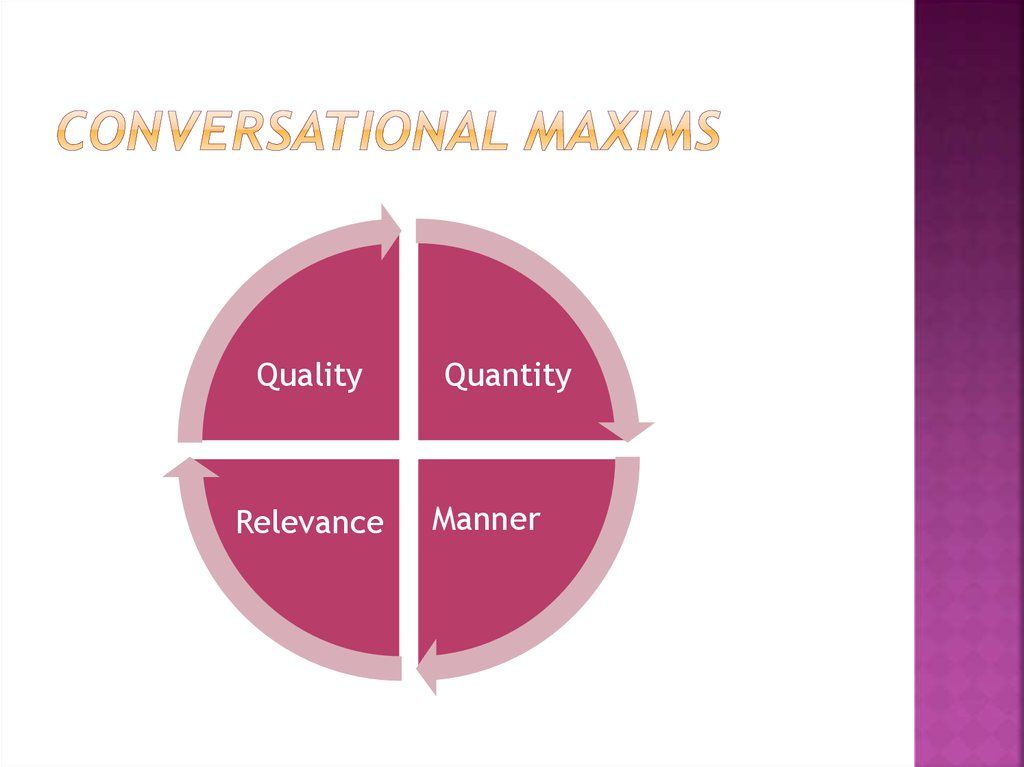According to the Organization for Economic Cooperation and Development, 50% of American adults cannot read a book written at an eighth-grade reading level. Comprehension is critical for spreading your message, and tools like the Flesch-Kincaid readability score exist to help us ensure our writing is easy to understand.
Grice’s Maxims: Post Outline (Click To Jump)
But if I’m being honest, readability is not enough for your business writing to be successful. Your copy needs to grip readers and slice through tons of online noise. Readers can’t just comprehend your words; they need to be moved and inspired by them.
To be more persuasive in your writing, know about Grice’s maxims.
What Are Grice’s Maxims?
20th-century British philosopher Paul Grice transformed our approach to semantics and language. His maxims for conversation are part of his work on the cooperative principle, which states that when people engage with one another there are unspoken assumptions around how the conversation will unfold.
When readers or prospective clients encounter your work, they are already filtering your arguments or statements through these four maxims. If you violate one or more of them, you’ll have a harder time winning over your reader. Why do that to yourself?
Your reader doesn’t realize they’re doing it either. The filtering is subconscious and begins happening at an early age; a 2015 study found that children as young as 6 years old could distinguish the presence or absence of all of the maxims when listening to someone speak. The next time you write something important, cross-reference your argument against these four maxims from British philosopher Paul Grice.

#1: Say What You Need To And Nothing More
According to the maxim of quantity, excess information clutters your argument. Ever check out of a conversation because the person talking keeps going off on tangents? Give me the minimum context I need to understand the situation and nothing more.
This is why writing pitches is especially good for practicing brevity. Pitches force you to blend information with curiosity in a way that captures an editor’s attention. Experts and authors often struggle with pitches because they require restraint and precision. The more you know, the more you have to leave out, which can be excruciating for a subject matter expert at first.
Here’s a helpful rule of thumb: Ask yourself “So what?” at the end of each sentence or story detail. If your language doesn’t actually propel your message forward, leave it out.
#2: Back Up Your Argument
Grice’s maxim of quality has two proponents: Tell the truth, and back up what you say with evidence, preferably scientific in nature. If your listener has to spend precious energy wondering whether the words you write are legitimate, their attention is being diverted from your message.
Data editor Mona Chalabi mentioned in a 2018 NPR interview that listeners can actually feel alienated by statistics if they don’t have sufficient context. According to this maxim, the natural disposition of a listener is to corroborate your argument in some way; anticipate this skepticism and you’ll do a better job holding someone’s rapt attention.
Science, statistics, and other proven examples can help you reinforce a position.
#3: Remain Relevant
Grice’s maxim of relevance states that the most potent pitches, articles, and arguments are those whose subject matter is highly relevant to the reader.
Companies have already picked up on these consumer semantics and adjusted accordingly, which is why customization was the #1 marketing trend for the second year in a row this year.
(And what could be more relevant to someone than having a product with their own name on it? This is what made Coca-Cola’s recent customization campaign wildly successful.)
Here is what Grice had to say about the topic:
“Though the maxim itself is terse, its formulation conceals a number of problems that exercise me a good deal: questions about what different kinds and focuses of relevance there may be, how these shift in the course of a talk exchange, how to allow for the fact that subjects of conversations are legitimately changed, and so on.
I find the treatment of such questions exceedingly difficult, and I hope to revert to them in later work." - Paul Grice, Logic and Conversation
#4: Choose Your Words Carefully
Grice’s final maxim, the maxim of manner, asks us to “be perspicuous,” a fancy way of saying you should be clear and easy to understand. This maxim refers more to your actual word choices; the more muddled your language, the harder it becomes to follow you.
Run your next draft through this maxim’s four sub-maxims to ensure minimal brain cells are required.
Avoid Obscure Expressions
A fancy vocabulary may make you feel smarter and crush it at Scrabble, but flowery language actually sets you back when it comes to keeping someone’s attention. Try to keep industry jargon to a minimum, too.
Avoid Ambiguity
Tailor the details to your target audience. Who is reading, and what are their true motivations? Answering this question will guide you on what language to adjust.
Keep It Brief
Grice refers to this sub-maxim as prolixity, which is a fancy way of reminding you to keep it short and to the point. Details create vividness, but if there’s a way to deliver all the information needed in fewer total words, err on the side of crispness. More citrus, less chocolate.
Stay Orderly
As soon as your reader’s brain has to overthink or work harder, the emotional brain takes a backseat to other parts of the brain responsible for information processing. In business writing, we don’t want this. We want to keep listeners in their emotional brain for as long as possible, because people act and buy on emotion.
Remember: Flow and order actually create more emotion for your listeners, not less.
Instead of trying to reinvent the wheel in order to be more persuasive, leverage the subconscious filtering mechanisms your audience already has. Keep your message clear and to the point, reference Grice’s maxims, and you’ll have everything you need to captivate readers the next time you have something important to say.
---
Thanks for reading. 🙏🏼
Keep up the momentum with one or more of these next steps:
📣 Share this post with your network or a friend. Sharing helps spread the word, and posts are formatted to be both easy to read and easy to curate – you'll look savvy and informed.
📲 Hang out with me on another platform. I'm active on Medium, Instagram, and LinkedIn – if you're on any of those, say hello.
📬 Sign up for my free email list. This is where my best, most exclusive and most valuable content gets published. Use any of the signup boxes in this article, or go to the newsletter page here.
🏕 Up your marketing game: Camp Wordsmith™ is my business and writing program for small business owners and online entrepreneurs. Get instant access to resources and templates guaranteed to make your marketing hustle faster, better, easier, and more fun. (It's also "glamping"-themed – who doesn't love luxurious camping?!) Learn more here.
📊 Hire my marketing company: Hefty Media Group provides consultation and done-for-you services in content marketing. We're a certified diversity supplier with the National Gay & Lesbian Chamber of Commerce, and we'll make you sound damn good via the written word. Learn more here.
© 2021, 2022, Hefty Media Group. All Rights Reserved.


